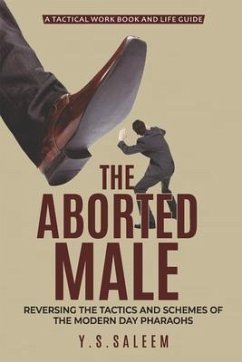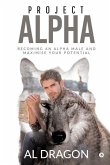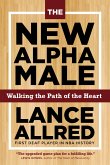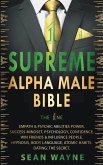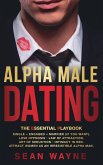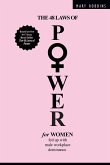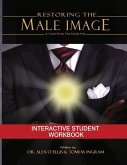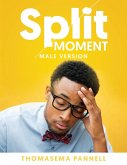In the powerful and transformative book, "The Aborted Male: Restoring Personal Power," Yusuf S. Saleem presents a comprehensive roadmap for men to reclaim their stolen personal power and restore themselves to wholeness. This empowering workbook and lifestyle guide not only offers men the tools and strategies they need to break free from the chains of cultural conditioning, but also serves as a beacon of hope for the daughters, sisters, mothers, and other women who love and support these men on their journey towards restoration. In today's society, many men feel aimless, weakened, and disconnected from their true essence. The constellations of stolen personal power have left them wandering, searching for a sense of purpose and identity. With deep empathy and profound insight, Yusuf S. Saleem explores the societal pressures, cultural influences, and personal wounds that have contributed to this loss of personal power. "The Aborted Male" serves as a guiding light, illuminating the path towards reclaiming personal power and cultivating a preferred character. Through a series of introspective exercises, thought-provoking reflections, and practical techniques, men are invited to embark on a transformative journey of self-discovery, healing, and personal empowerment. From unraveling the tangled webs of conditioned beliefs and toxic masculinity to embracing vulnerability and emotional intelligence, each chapter is designed to help men reclaim their authentic selves and restore the constellations of personal power that have been stolen from them. But this book is not only for men-- it is a source of inspiration and understanding for the women who love them. Daughters, sisters, mothers, and partners can find solace and guidance within these pages as they support the men in their lives on their path towards restoration. By embracing the principles and practices outlined in "The Aborted Male," women can play an integral role in creating a nurturing and empowering environment that fosters the growth and cultivation of the men they hold dear. With deep reverence for the complexity of the human experience, Yusuf S. Saleem intertwines wisdom from various disciplines, including psychology, spirituality, philosophy, and sociology, to provide a holistic approach to personal transformation. This comprehensive workbook and guidebook addresses not only the external challenges men face but also the internal battles that prevent them from fully stepping into their power. By cultivating self-awareness, emotional resilience, and a deep connection to one's purpose, men can rise above societal limitations and create lives of meaning, authenticity, and fulfillment. "The Aborted Male" is a call to action, a testament to the resilience of the human spirit, and a guidebook for men and the women who love them. It is a powerful resource for anyone seeking personal empowerment, restoration, and the cultivation of a preferred character. Through its pages, men and women alike will discover the transformative power of reclaiming stolen personal power and restoring themselves to wholeness.
Hinweis: Dieser Artikel kann nur an eine deutsche Lieferadresse ausgeliefert werden.
Hinweis: Dieser Artikel kann nur an eine deutsche Lieferadresse ausgeliefert werden.

